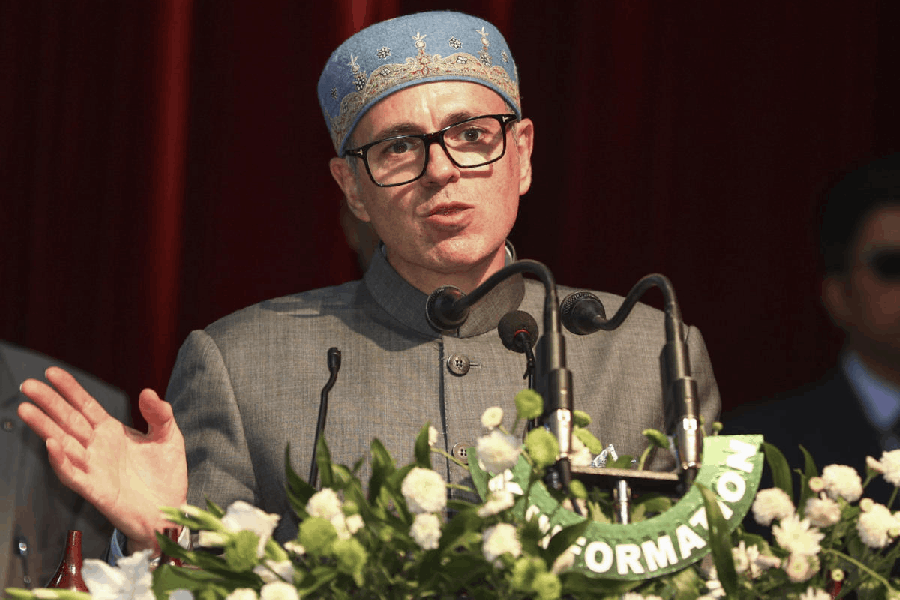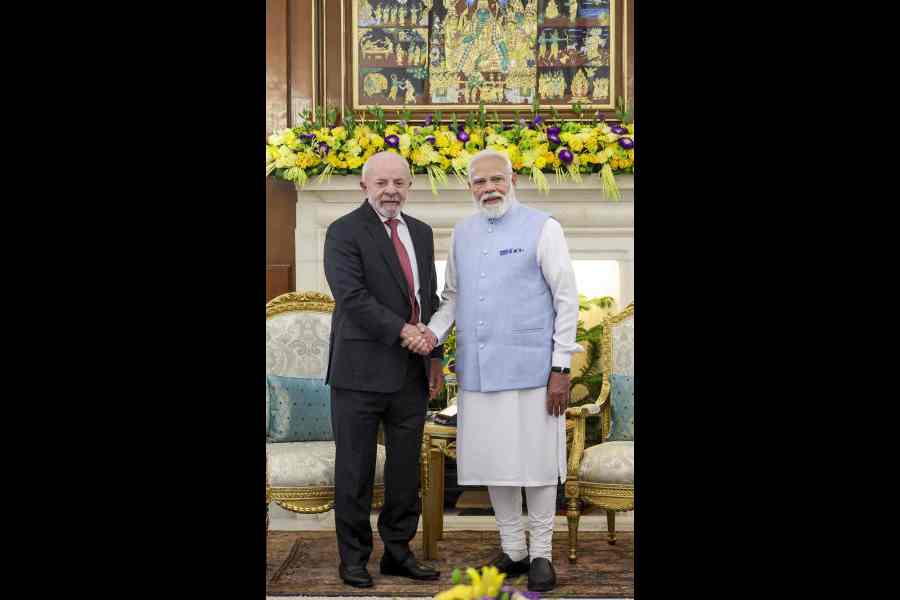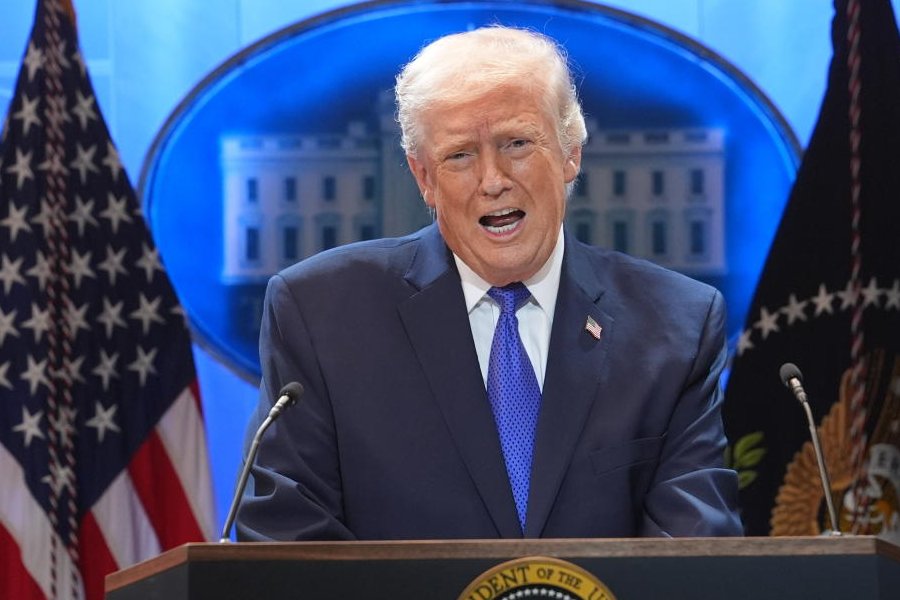Daylight robbery
Sir — A recent video from Nitish Kumar’s oath ceremony shows people walking off with the decorative flowers after the event ended. Officials later noted that the removal of these items counted as unauthorised appropriation of private property. Many observers commented that this was a telling example of poor civic sense; it also conveyed a sense of entitlement that is unwarranted. Reports suggest that this kind of behaviour is common in many parts of India, not only Bihar, which has earlier seen people plunder decorative fish from such a political event. Think of passengers who feel entitled to steal bulbs and mugs from trains. At least a bulb, a mug and fish have some utilitarian value. Stealing fake flowers defies logic.
Mansoor Ali,
Calcutta
Mixed bag
Sir — COP30 concluded in Belém, a city in a tropical rainforest in Brazil’s Amazon (“Damp squib”, Nov 25). From the outset, international differences on climate issues were glaring. The United States of America, the world’s largest emitter, did not attend. The summit struggled to reach a consensus on phasing out fossil fuels and failed. The commitment to transitioning away from fossil fuels, including natural gas, coal, and crude oil, was considered a landmark achievement of COP28 in Dubai. Yet, the deal fell short amid fierce lobbying from oil-producing countries calling for a phase-out. Little progress has been made since.
Jang Bahadur Singh,
Jamshedpur
Sir — It is heartening that COP30 made progress in breaking the impasse between developed and developing nations on climate finance. The developed countries agreed to establish a two-year programme to help developing nations mobilise at least $1.3 trillion annually by 2035. This fund is crucial for climate action Equally notable was the former’s commitment to tripling adaptation finance over the next 10 years and operationalising the Loss and Damage Fund established at COP28. While the summit restored a degree of trust in the strained climate negotiation process, the real challenge lies in accelerating tangible climate action.
M. Jeyaram,
Sholavandan, Tamil Nadu
Sir — The negotiations at COP30 have, once again, placed climate justice at the centre of global debate . Developed nations expanded their wealth through the use of fossil fuel for centuries while developing countries are now being urged to cut emissions, often at the cost of growth and survival. If climate change is a shared challenge, the responsibility to control it should also be shared. The challenges is to make the process equitable not just equal.
Md. Hasnain,
Muzaffarpur, Bihar
Special victory
Sir — The Indian blind women’s cricket team should be congratulated for scripting history by winning the first-ever Women’s T20 Cricket World Cup for the Blind with a dominant seven-wicket victory against Nepal in the final held in Colombo. The success marked the culmination of a perfect campaign where India remained unbeaten throughout the tournament. The victory comes barely three weeks after the Indian women’s team defeated South Africa in Navi Mumbai. These two landmark wins highlight the rising status of women’s cricket in the country. Khula Sharir emerged as the standout performer; she scored an unbeaten 44 off 27 balls, including four boundaries, to guide India home comfortably.
Khokan Das,
Calcutta
Sir — The Indian blind women’s cricket team registered a historic triumph in the inaugural Women’s T20 Cricket World Cup. The team remaining unbeaten throughout the tournament is an extraordinary achievement and a proud moment for the nation. This victory will inspire countless young athletes across the country.
Md. Hammad,
Araria, Bihar
Sir — The victory of the Indian blind women’s cricket team sends a clear message: physical limitations cannot limit a person’s true potential. Blind women are not just playing cricket but are competing, winning and inspiring the world. This triumph has made Indian sports more equal and inclusive
Divya B.K.,
Tumkur, Karnataka
Poisoned water
Sir — The discovery
of uranium in the breastmilk of mothers in Bihar is a
serious warning. This problem is surely not limited to one state; groundwater contamination is rising across many regions because of poor monitoring and careless industrial and agricultural practices. Although experts have advised that mothers can continue breastfeeding, this must not become an excuse for government inaction.
Tousik Rahman,
South 24 Parganas
Hope renewed
Sir — On taking charge as the 53rd chief justice of India, Justice Surya Kant delivered a message that resonated with the conscience of every citizen. Calling justice the armour of the republic, he described the Constitution as the nation’s moral compass. The nation now looks at him with hope. If he fulfils the hope he has held out, he will be remembered as a true guardian of India’s Constitution.
R.S. Narula,
Patiala
Sie — Justice Surya
Kant’s ascent to the apex judicial office comes at a
critical juncture marked
by a formidable backlog of cases. The Supreme Court alone has around 90,000 pending cases and the lower judiciary has over 5.4 crore cases. As the apex court grapples to clear this backlog, the CJI’s leadership will be vital in reaffirming the judiciary’s role as the custodian of justice and constitutional morality.
Ranganathan Sivakumar,
Chennai











